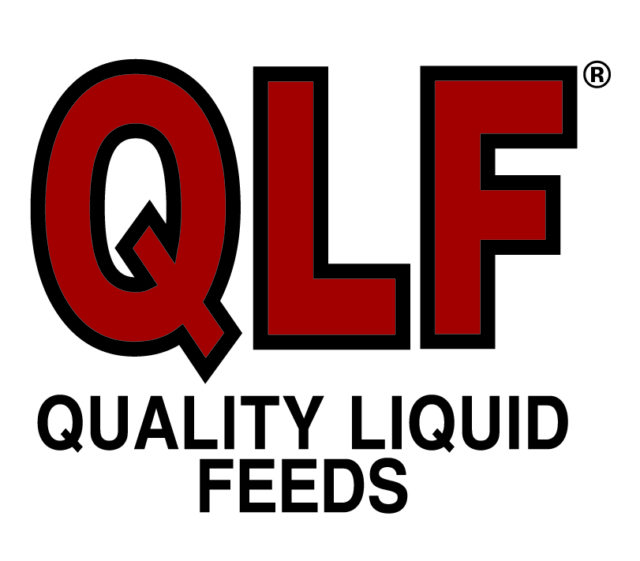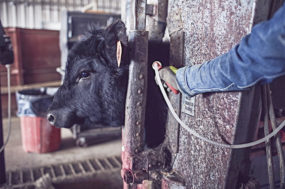Almost a year ago, we watched in amazement as Dodge Ram shocked the ag world with their “So God Made a Farmer” Super Bowl commercial. As many times as I’ve watched that commercial, I still get chills.
As many times as I’ve watched that commercial – I overlooked the tag line: “dedicated to the farmer in all of us.” Dodge – in 60 seconds – was able to convey the passion, compassion, grit and dedication that characterize our nation’s farmers and ranchers.
Maybe there is a little farmer in all of us; but not all of us are farmers.
We’ve all heard the statistics: just 2 percent of our population feeds 100 percent. That means just 2 percent of Americans “get up before dawn and milk cows and work all day in the fields, milk cows again, eat supper and then go to town and stay past midnight at a meeting of the school board,” according to the Super Bowl commercial that used quotes from Paul Harvey.
Less than 2 percent of Americans know about rustling a calf, calling hogs, or taming cantankerous machinery. And less than 2 percent of Americans are “strong enough to clear trees, heave bails and yet gentle enough to tame lambs and wean pigs.”
Less than 2 percent of our population has dedicated their lives to feeding, clothing and fueling our country – and the world. Which means that 98 percent of us don’t have to worry about getting up early to milk cows or wean pigs or rustle a calf.
And thank God for that.
While Dodge may be optimistic that there’s “farmer” in all of us, I’m doubtful that there is. You see, the thing I love about the animal agriculture industry are the farmers and ranchers I get to represent. It takes a rare breed of man or woman to raise animals, plant crops and produce food day in and day out. It takes passion, compassion, grit and dedication. It takes a combination of toughness and tenderness.
These fine folks wake up every day and worry about how to feed our growing population so that 98 percent of Americans can do something else: so doctors can heal, lawyers can argue, communicators can talk and teachers can teach. So artists can paint, and sculpt and shape. So bankers and financiers and investors can trade and invest and calculate. So that lobbyists and politicians can strike deals and give favors and run for election and re-election.
It’s because God made a farmer that we’re able to hypothesize and theorize and debate the merits of livestock production and “industrial agriculture” and food.
And some days I don’t know if I can thank God for that debate.
I was in Atlanta last week for the International Production and Processing Expo. A dear, dear man, and poultry industry legend introduced me to someone very special to him – a long-time Hyatt hotel employee named Talley.
Talley emigrated to the U.S. more than 30 years ago from Gambia, a country in Africa so small that Talley quipped, “they say you can hit a tennis ball in Gambia and have to retrieve it across the border in another country.”
Never a geography buff, I went upstairs that night and looked up Gambia. Turns out, Gambia is one of Africa's smallest and poorest nations, ranking 168th out of 187 countries in the United Nations Development Programme's 2011 human development index. Poverty is widespread, pervasive and predominantly rural. Approximately three quarters of the rural population in Gambia are classified as poor.
Underlying the high poverty rates is the country's relatively lack of economic diversity, which makes Gambia highly vulnerable to increasingly erratic rainfall, food price volatility and financial crises. The consequences of rural poverty include widespread food and income insecurity resulting from weather-induced crop failures and shortages of cash. More than 60 percent of all Gambians – and an even higher proportion among poor and extremely poor people – depend on agriculture for their livelihood. At least half of the country's poor population is composed of farmers and agricultural workers.
That means over half of all Gambians work to feed the rest. That means there are fewer Gambian doctors and teachers and lawyers and politicians (maybe not a bad thing!) and bankers and artists – because all of those would-be professionals have to worry about feeding themselves. They have to farm and raise animals so that their families can eat –and a lot of times, they don’t produce enough food to feed their hungry country.
I would venture to guess that not many Gambians are having debates about the best way to house sows or breed chickens or slaughter cattle. I’m guessing there’s no “Gambian Moms Against Superbugs” or Frontline exposes or Chipotle animated commercials (or Chipotle’s for that matter) raising questions and casting aspersions about agriculture.
I’m a firm believer that we in agriculture need to listen first to understand and then to be understood, that we need to try and make connections with consumers and bring that 98 percent into the world inhabited by the 2 percent.
But at the same time, I wish that the 98 percent would glance up from the New York Times or the Huffington Post and recognize that without farmers, they’d be tilling the land and slaughtering their own chickens just like Gambians; that we can have these debates and this discourse about food because many of us Americans don’t have to worry about where our next meal is coming from.
We can theorize and hypothesize and analyze and criticize food production because God not only made a farmer, but God made an ingenious and efficient farmer that allowed us to produce more food using less resources and less farmers.
The United Nations has declared 2014 the year of the Farmer, and I couldn’t think this a more apt time for agriculture to build upon its efforts in 2013 to be more transparent and have conversations and “agvocate.”
But I also hope that the 2014 “Year of the Farmer” inspires gratitude in those that aren’t farmers. I hope that 2014 is the year that Americans truly get in touch with the “farmer in all of us.” I hope that in 2014, we’re all a little more grateful that God did make a farmer.
I know I am. ![]()

Emily Metz Meredith
Communications Director
Animal Agriculture Alliance






